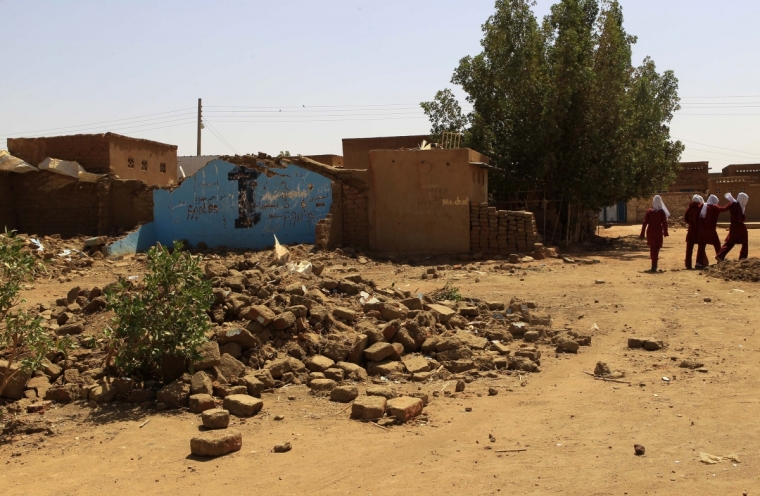30-year-old Sudanese church destroyed to make way for businesses; newer mosque allowed to remain

JUBA, South Sudan (Christian Examiner) – Police, in spite of protests from Christians in the city of Omdurman, bulldozed a Christian church to make way for "business development," but allowed a nearby mosque to remain, the Sudanese Morning Star News has reported.
According to accounts from the area, the Sudanese Lutheran Chuch in Omdurman, just across the Nile River from Khartoum, was knocked down Oct. 21. The building was being used by an evangelical Lutheran congregation, the reports said.
Christians affected by the loss of the church weren't buying the government's reasoning behind the church's destruction because the mosque stands close by. Church leaders were given notice of the demolition only 72 hours before the work began.
The strange thing is that the church was destroyed but the mosque was still standing in its place! This shows us many things. ... We were asking them, 'Where are our rights?' But their answers were, 'No place for Christianity after Southern Sudan separated.
"The government has lied to us, because they told us that this church will not be demolished," one leader said on condition of anonymity.
"This is something that was well planned," another church leader said.
According to another report, the church had been in place for the better part of 30 years. It seated only about 150 worshippers, and in addition to its destruction, police took chairs and desks that also belonged to the church.
"Destroying the church building made us feel we have lost everything," a local leader in the Lutheran church said. "Chairs, seats, etc., have also been taken by the local authorities."
"The strange thing is that the church was destroyed but the mosque was still standing in its place! This shows us many things...We were asking them, 'Where are our rights?' But their answers were, 'No place for Christianity after Southern Sudan separated,'" the church leader said.
Sudan and South Sudan split from one another in 2011, but the relationship between the two countries is rife with tension. South Sudan is home to a small Christian minority, while Sudan is home to marauding bands of Muslim extremists. Since 2012, Sudan has bulldozed several church buildings and expelled foreign Christian workers, Morning Star News reported.
Sudanese police, supported by the National Intelligence and Security Services, on Feb. 17, 2014 demolished another church building in Omdurman without prior notice, area sources said. That church belonged to the Sudanese Church of Christ.
In the following August, agents from the county's secret police padlocked the building of the 500-member Sudan Pentecostal Church (SPC) in Khartoum, which housed the Khartoum Christian Center (KCC). The Sudanese Air Force also bombed a church in Nuba in October 2014.
In July 2011, Sudan President Omar al-Bashir pledge to adopt a more rigorous form of sharia law and to implement in disputed regions between Sudan and South Sudan. Al-Bashir, who is wanted for war crimes and genocide in Darfur and still exhibits great influence in the South, also said no new churches would be allowed in Sudan.
Al-Bashir may be retaliating since the church supported the secession of South Sudan as early as 2008.
Things are not much better for South Sudan. President Salva Kiir frequently has political opponents arrested and imprisoned.
Sudan has been designated a Country of Particular Concern by the U.S. State Department since 1999, and the U.S. Commission on International Religious Freedom recommended the country remain on the list in its 2015 report.